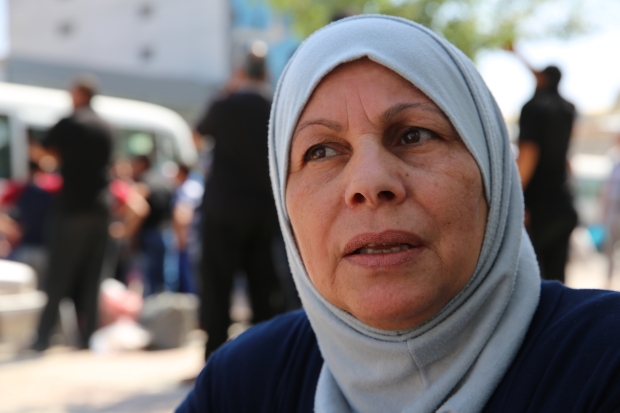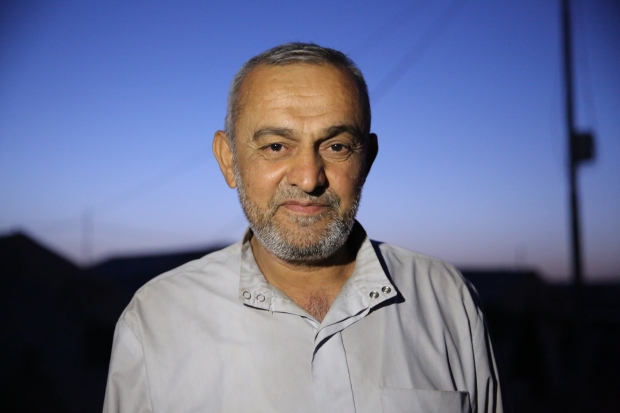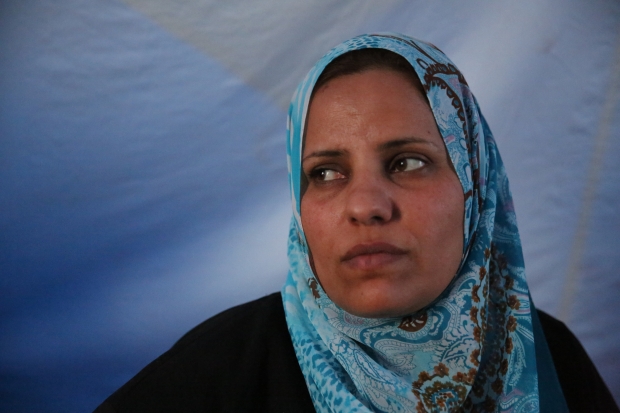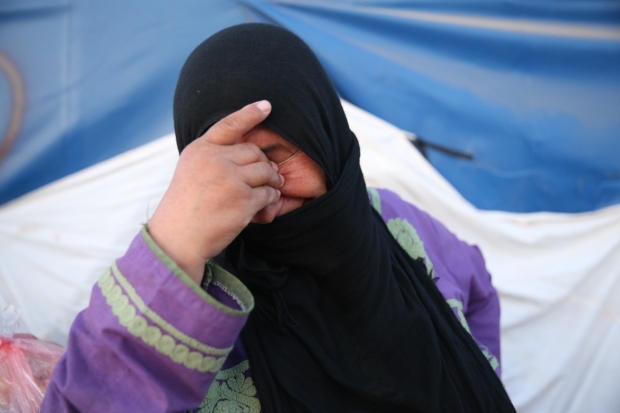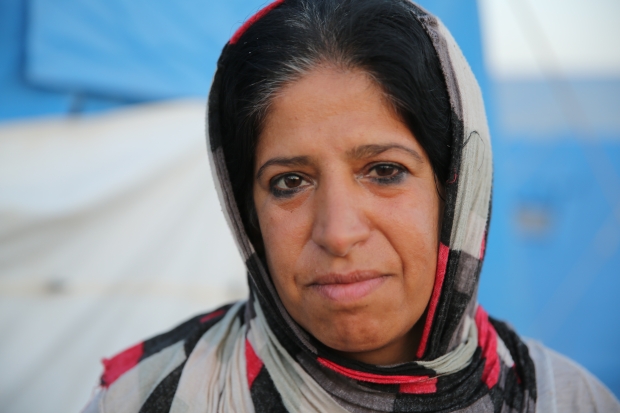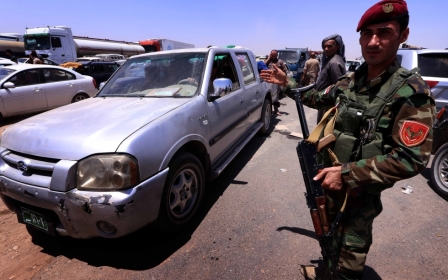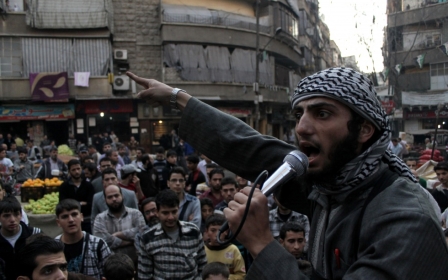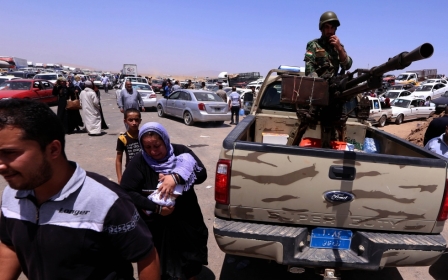Refugee voices: Mosul’s displaced speak out about Iraq's troubles
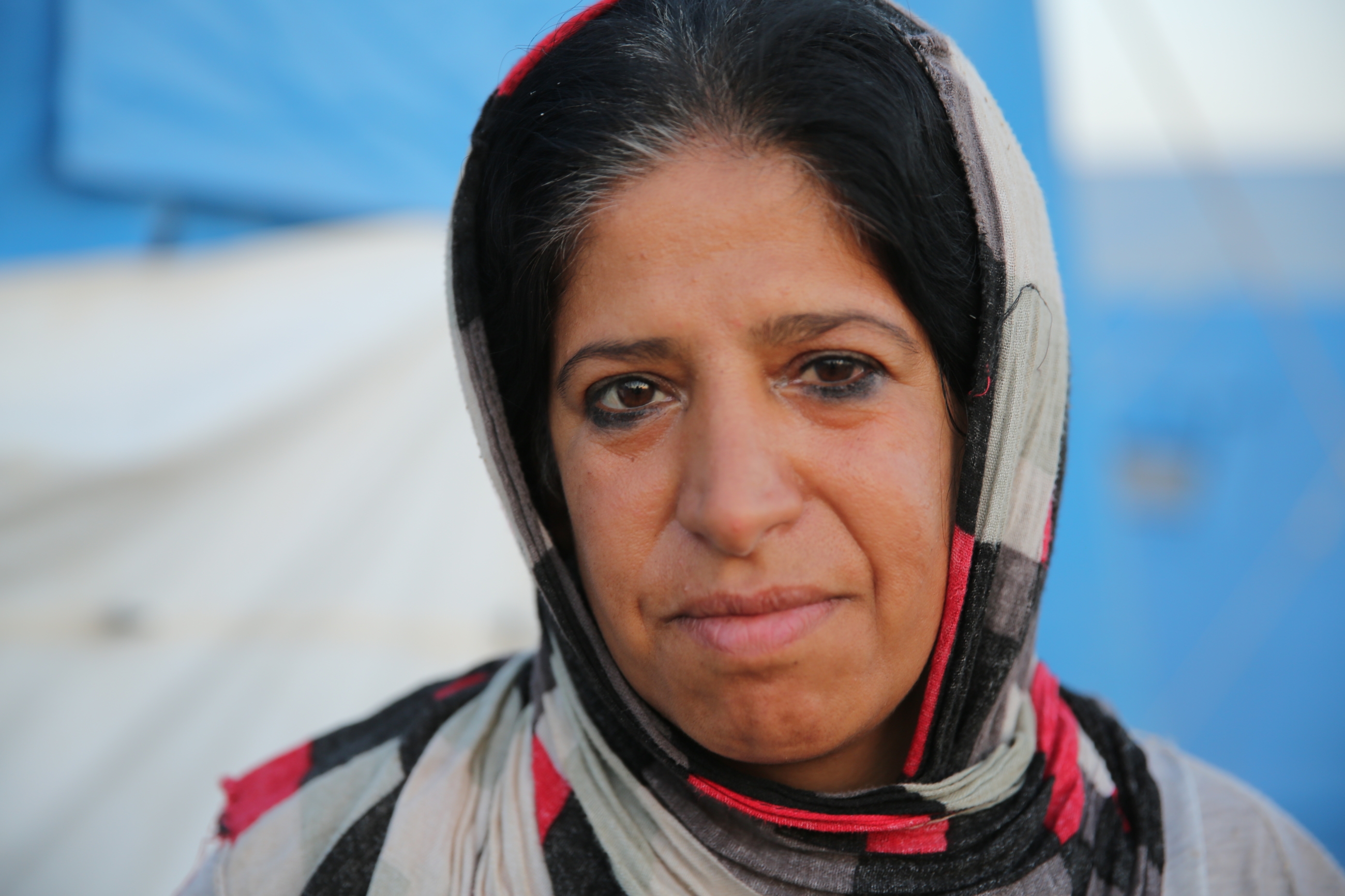
With hundreds of thousands of Iraqis displaced in just a few days, everyone has a different story to tell. Some fled Mosul, which fell to ISIL-led forces last week, as they feared what the militants might do, while others packed their bags in anticipation of an Iraqi military counter-offensive many expect would come within days.
Almost a week since fighting first broke out, MEE meets the refugees who are bearing the brunt of Iraq’s latest troubles.
Um Zina, from Mosul
We didn’t expect what happened. We woke up in the morning and there was no army, Mosul was taken over by insurgents.
Buildings and police stations were on fire. We left. I have girls so I was scared for them because we don’t know how things will play out in this situation.
If it was just me and the old man, I wouldn’t be afraid. Thank God, they received us incredibly well in Kurdistan - they showed great hospitality. But now we want to go back to Baghdad. We are originally from Baghdad.
What we hear from our neighbours and relatives that stayed behind is that normal life has resumed, but without government there is no stability.
No more job, no more sense of safety in your home. Anything can happen at any moment. Once local authorities are restored, then we can feel safe again.
The rapid fall of these cities defies logic. It was a huge surprise to us. How is it possible that the army and the police fell apart in a matter of hours, while the government stands idly by? It’s not possible, unless there is foul play.
Everyone has their own analysis. Some say that there was an agreement between the government and the insurgents, others that it happened without the government’s consent.
Saad Abu Mohammed, from Mosul and now in an IDP camp on side of road connecting Erbil to Mosul
I arrived at the IDP camp on the outskirts of Erbil on Saturday [14 June]. The situation is very rough in Mosul. I came with my wife and my two children because I was afraid that jets will bomb indiscriminately as they strike against the armed groups. We were afraid for our lives and for that of the children. I will head back to Mosul as soon as the situation calms down, even if the city remains in the hands of the Daash (ISIL). I believe their mission is to overthrow the Maliki regime. It is sectarian and unfair - he always strikes against Sunni regions.
I welcome Daash. Their goal is to restore security and justice. Let’s be done with the injustice of the Maliki regime. Daash is not a terrorist group. It is a group with principles that respects our religion. Now, in Mosul, for example, women are required to wear the hijab. If there are no borders left between Syria and Iraq, I would be happy. I hope for that. I wish for all Arabic countries to be one.
Wifaa Umm Mahmoud, primary school teacher, originally from Baghdad but living in Mosul
I arrived at the refugee camp with my three children on Sunday. We heard the sound of airplanes and we feared that we would be caught up in the bombing. Over the last few days, there were strikes. We were so afraid. There were clashes, every minute – boom! - mortars and clashes. We packed our clothes, locked the doors and came here.
The Daash left civilians alone, but attacked everyone who was related to the government.
All the shops were shuttered and people stayed at home. As long as the clashes stop, the shops open and work resumes, as long as there is security, I would go back, even if the Daash were in charge.
The Daash didn’t interfere with us when it comes to what we wear, whether people are allowed to smoke or not. They just told us that their only goal was to replace the government.
Overnight we found ourselves with no government, no army, and no security. I think they have been plotting this for a long time, but they were waiting for the right opportunity. We hope Iraq will see a better tomorrow, but I am scared that we will be hit by air strikes, that families will lose their lives in air strikes, as was the case in Fallujah.
Ayida Mattar Chebel, from Mosul
I had gone to the doctor with my husband when the air strike came and Daash opened fire. The neighbours called me to let me know that my house had fallen. I have no children, I have no education, all I have God gave me. I worked as a tailor, stitch by stitch for that house.
Those striking Mosul do not believe in God. What is our fault? Stitch by stitch, I made my house. The house has collapsed. I have no children. All I have is a house and it is gone. There is no house, no money, and no job, there is nothing left for me to do.
Nahla Alai, from Mosul
I arrived at the refugee camp with my husband on Friday afternoon. My children, four girls and one boy, were scared.
At home, my husband works at a gas station and makes 6,000 dinars ($5) per day. I wasn’t afraid but my children were petrified of the clashes.
We have no one to protect us. They weren’t targeting us, but we could hear the fighting locked up in our rooms.
I’m not going back to Mosul. I’m going to stay put here - imagine, maybe they will make us a house. I’m scared. I don’t know what are Daash’s [ISIL’s] aims, but there is nothing left there at the moment and I’m scared I will lose my children in air strikes. I will not go back because here it is safe. We want Iraq to return to peace.
New MEE newsletter: Jerusalem Dispatch
Sign up to get the latest insights and analysis on Israel-Palestine, alongside Turkey Unpacked and other MEE newsletters
Middle East Eye delivers independent and unrivalled coverage and analysis of the Middle East, North Africa and beyond. To learn more about republishing this content and the associated fees, please fill out this form. More about MEE can be found here.


